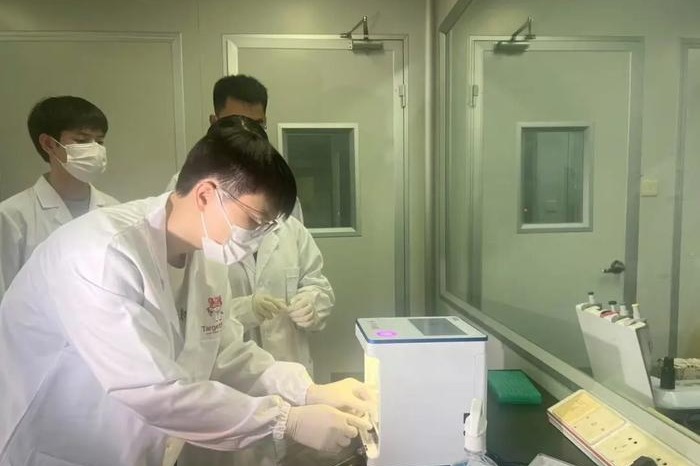Japan's moon craft losing power after landing

TOKYO — Japan became the fifth country to achieve a soft lunar landing on Saturday, but said its "Moon Sniper" spacecraft was running out of power because of a solar battery problem.
After a nail-biting 20-minute descent, the space agency JAXA said its Smart Lander for Investigating Moon, or SLIM, had touched down and communication had been established.
But without the solar cells functioning, JAXA official Hitoshi Kuninaka said the craft, dubbed the Moon Sniper for its precision technology, would only have power for "several hours".
SLIM is one of several new lunar missions launched by governments and private companies, 50 years after the first human moon landing.
Crash landings and communication failures are rife, and only four other countries have made it to the moon: the United States, the Soviet Union, China and India.
As mission control prioritized gathering of data while it could, Kuninaka suggested the batteries might work again once the angle of the sun changed.
"It's possible that it is not facing in the originally planned direction," he said.
"If the descent was not successful, it would have crashed at a very high speed. If that were the case, all functionality of the probe would be lost," he said. "But data are being sent to Earth."
JAXA hopes to analyze data acquired during the landing, which will help determine whether the craft achieved the aim of landing within 100 meters of its intended landing spot.
Several things could have caused the solar panel problem, said Jonathan McDowell, an astronomer at the Harvard-Smithsonian Center for Astrophysics.
"A wire came loose, a wire was connected the wrong way, or the lander is upside down and can't see the sun for some reason," McDowell speculated.
"Hopefully", JAXA had been able to download images from the landing, he said, but an experiment to study the composition of moon rocks may be a lost cause.
Russia, China and other countries from South Korea to the United Arab Emirates are also trying their luck to reach the moon.
Failed mission
On Friday NASA confirmed the first flight of its commercial lunar delivery service carrying agency-sponsored payloads, as well as other customer payloads intended for the moon, has come to an end.
The US private company Astrobotic Technology said contact and then tracking was lost as its lunar lander, dubbed Peregrine, reentered Earth's atmosphere on Thursday, 10 days after its launch from Florida. It received confirmation on Friday from US Space Command that the spacecraft broke apart during its final moments, CEO John Thornton said.
A fuel leak shortly after liftoff had made any chance of a moon touchdown impossible.
NASA has also postponed plans for crewed lunar missions under its Artemis program.
Two previous Japanese lunar missions — one public and one private — have failed.
In 2022 the country unsuccessfully sent a lunar probe named Omotenashi as part of the US' Artemis 1 mission.
In April the Japanese start-up ispace tried in vain to become the first private company to land on the moon, losing communication with its craft after what it described as a "hard landing".
Agencies - Xinhua

Today's Top News
- Books of Xi's discourses on adhering to deepening reform comprehensively published
- China holds 2nd rehearsal for event marking 80th anniversary of victory over Japanese aggression, fascism
- Foreign athletes embrace culture, innovation at Chengdu World Games
- Meet again? Putin says: Next time in Moscow
- Zelensky to meet Trump in Washington on Monday
- Wang Yi to visit India from Monday






























